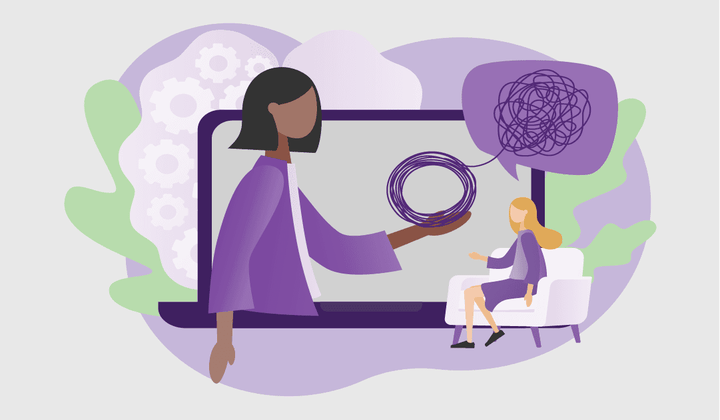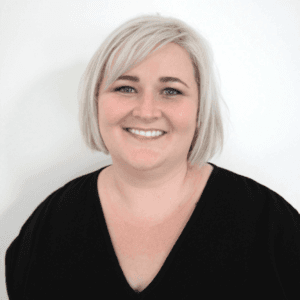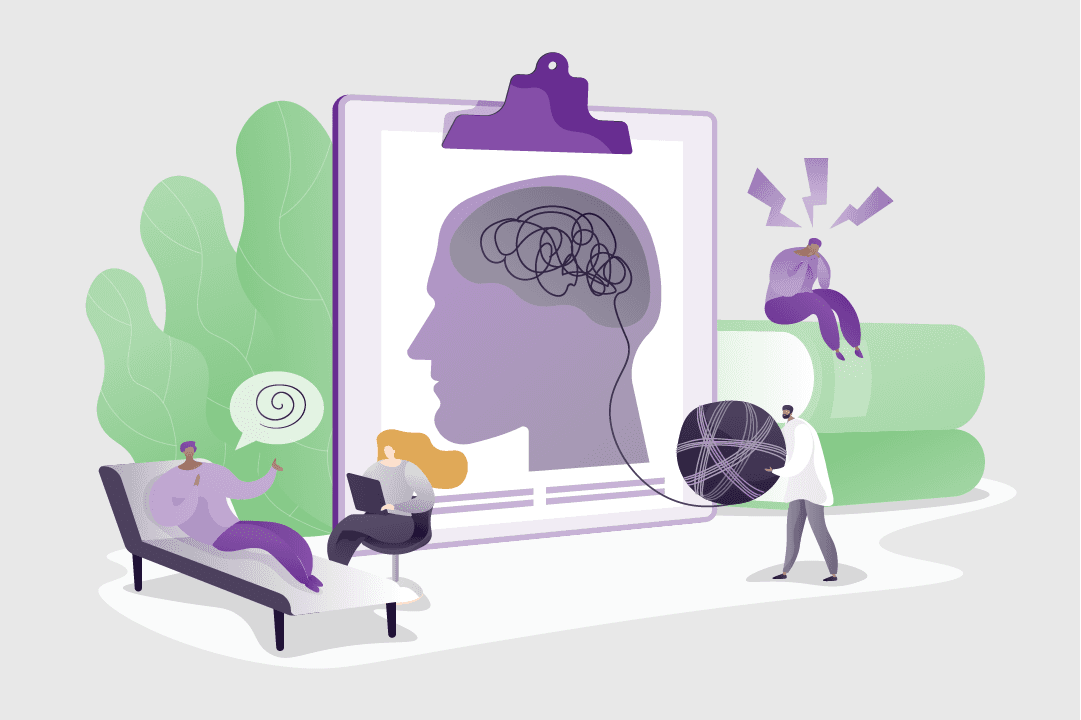7 Things I Wish I Knew Before Becoming a Counsellor

Whenever you begin anything new – whether it’s embarking on a different career, or trying out a recipe – there is always an inevitable moment where you think, “I wish I’d known that earlier.” One of the best ways to prepare for a career is getting advice from people who’ve been there.
Amber Rules, a practicing psychotherapist, counsellor, clinical supervisor, and facilitator, shares with us some of the things she wished she knew before becoming a counsellor.
Meet Amber

Amber specialises in working with people impacted by addiction. She is the Director and Founder of Rough Patch, an affordable counselling clinic in Sydney, NSW, offering lower-cost counselling and other mental health supports.
Here are her insights into the reality of being a counsellor.
1. You don’t have to know how to fix everyone’s problems
“I thought that being a counsellor was about knowing all the answers and giving people advice,” Amber says. “It was only later that I realised counselling is about compassionately and curiously lending your mind to someone for 50 minutes, and seeing what comes of that.”
People are often drawn to counselling to help others in their everyday lives and out of an interest in human behaviour. But counsellors can’t decide what their clients should do. Rather, they need to listen closely to their clients, engage in discussions, and ultimately help the client come to their own insights, goals, and conclusions.
2. It’s not like the movies and TV shows; and the stereotypes aren’t 100% accurate
Amber remembers her own stereotypical views of counselling: “I imagined every counselling office was like the typical psychoanalysts’ office with a Persian rug, Freud volumes and dark furniture!”
The stereotypes aren’t exactly wrong, as Amber says, “I often joke with my colleagues that to be a counsellor, you’re required to own pashminas and chunky bead necklaces, or plaid jackets with corduroy elbow patches.” But they give a limited account of a diverse workforce where people have an array of approaches and specialisations.
“Like the rest of us, counsellors come from all walks of life, all backgrounds, all life-experience,” Amber explains. “We’re all different, which is really important for ensuring anyone can find a counsellor they feel comfortable with and that understands their experiences.”
In fact, it’s important that health professionals have a variety of perspectives and come from a range of backgrounds. Different counsellors build a natural rapport with different clients, so it benefits clients when they have a variety of professionals they can choose from. On top of this, counsellors who are from underrepresented communities can provide uniquely informed clinical services in a range of counselling fields.
3. It’s essential to have been a client, and to have supervision
Amber believes that having done therapy before she started studying helped her know what to expect out of the career. But there are other benefits too.
In Australia, it’s common for counsellors to have a supervisor, a more experienced colleague who offers ethical, personal, and professional development. A supervisor is like a mix of a counsellor’s counsellor and a consultant or mentor. They also supplement formal qualifications. Professional accredited bodies such as the Australian Counselling Association (ACA) or the Psychotherapy and Counselling Federation of Australia (PACFA) allow you to find a supervisor who meets high professional standards.
“I believe that regular counselling and clinical supervision is the most essential part of being a good counsellor with longevity in the industry,” says Amber. “You cannot be a good counsellor without having a regular time to reflect and work on yourself, and beheld compassionately accountable for providing good care to your clients.
“In my mind, it’s the same as taking your car to a mechanic who doesn’t know how to drive — they can have all the training in the world, but they don’t know what it’s like to sit in the driver’s seat and actually have the experience of driving. It’s the same with counselling — I don’t think you can truly offer empathy or understanding if you don’t know what it’s like to sit on the client’s couch.”
4. The values you have as you get started may well fuel your career, but they may expand too
When Amber decided to change careers to become a counsellor, she was compelled by the desire to do something meaningful and in line with her values. “My values remain the same,” she says. But they’ve also broadened.
“As I have learned more about the structural inequality of access to mental health care in Australia, I have become increasingly motivated to explore ways of making access and affordability better.” She founded her business, Rough Patch, as “a way to try and address the long waitlists and high costs (even with Medicare rebates) of counselling in Australia”.
Increasingly, she’s also interested in supporting counsellors through their careers. “There are so many services who are under-funded, under-resourced, overworked and — the expectations placed on counsellors who work in these systems are extraordinary, and often lead to burn out. So over time, my goals have expanded to include counsellors in the care and support that is often available to clients, but not to us.”
Discover more about the fields of counselling and psychology, and which might be better for you.
5. The industry is not a utopia
Looking back to when she began studying her counselling course, Amber recalls, “I had an almost utopian view of what work would be like! I imagined lots of really deep, meaningful conversations about therapy and life; plenty of time to think, feel and explore; endless moments of connection and joy.”
Amber maintains that counselling is a rewarding career and an important profession within Australia’s healthcare system. But it’s not all meaningful moments. “My biggest challenges have never been the therapeutic work, but rather the organisations and systems I’ve worked within. I didn’t realise how difficult all of the stuff that sits outside the counselling room can be.”
Amber has found a few aspects of the industry difficult. One was trying to find a job that was a good fit for her, which took a few years.
Another challenge is the salary. “I also expected that therapists made a significant wage. Unfortunately, this isn’t the case,” she explains. “For most of us, it costs a lot to be a counsellor, especially in private practice, and it takes time to be experienced enough to earn more or charge on the higher end of the scale.”
job growth by 2024
Source
There are so many different types of counselling careers, how do you decide where to specialise? Check out the top six highest-paying fields in counselling.
6. Sometimes the clients who end up loving the process are different to who you’d expect
“Even after having been a counsellor for quite some time, what still surprises me are the people who really take to counselling as a means for growth and self-exploration,” Amber says. “I’ve often been surprised about the people who really take to long-term counselling and love it, and it still challenges my biases and judgements all the time.”
Clients come to counselling for a range of reasons, including some who aren’t particularly enthusiastic about being there. For example:
- Sometimes young people are pressured to go to counselling sessions by parents or schools.
- Some courts may recommend or order counselling.
- Some clients may be cajoled into counselling by concerned loved ones.
- Some clients might not trust the counselling process.
- Some clients may have behavioural and emotional issues; a mental illness; or health problems. These things can make it difficult for them to engage in counselling.
But even reluctant clients can be rewarding to work with. “I’ve had clients who didn’t really want to be attending counselling,” Amber says. “But by the end of our time together, they were thrilled to have done it. It never ceases to make me smile.”
7. You may never know the impact you have on clients (although when you find out, it’s amazing)
“Counsellors often don’t get to see the results of therapeutic work,” Amber explains. “In terms of gratification, it’s often low-yield!” Often counsellors will see clients over the short-term, for a limited number of face-to-face sessions, so you’ll be left wondering months or years down the track what’s happened to them, and if you’ve helped.
The bright side is that sometimes people do get in touch to tell you how they’re going. “For me, it’s an absolute joy when I hear from a client who says they are doing well, or have been able to shift some patterns they were unhappy with,” Amber says.
“In my specialty of addiction, there can be so much sadness and tragedy that leads people to become dependent, and it’s so rewarding when I get to witness someone healing, changing, and growing. It’s truly the most magical and privileged experience to work alongside someone as they do this work.”

Turn passion into a career
If you’re passionate about helping others and want to turn that into a career, counselling could be the right path
So you know what to expect, do you have the skills to become a counsellor?
Learn about five of the most crucial skills to have as a counsellor, and how to start developing them in everyday life.
(Hint: you might even already have them.)
